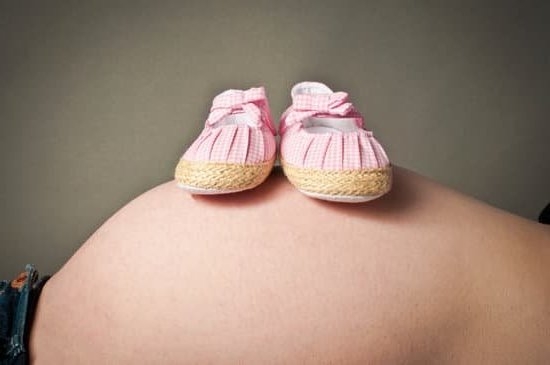Introduction
Pregnancy tests can be used to determine if a woman is pregnant. These tests are typically done in the form of a urine test or blood test, and they check for the presence of human chorionic gonadotropin (hCG), which is produced when an embryo implants in the uterine lining. Pregnancy tests can provide accurate results as soon as one week after implantation, however some tests may not detect hCG until two weeks after implantation. Depending on when and how the pregnancy test is taken, false positive and false negative results can occur. To reduce the risk of a false reading, women should make sure they follow all instructions closely and read the label before taking a pregnancy test.
The Science Behind Pregnancy Tests and Why Weeks Matter
Most pregnancy tests are designed to accurately detect the presence of a woman’s pregnancy hormone (e.g. human chorionic gonadotrophin, or HCG), which is produced when a fetus is implanted in the uterus. The amount of this hormone typically doubles every 48 to 72 hours after it has been detected initially, so a pregnancy test taken one week after conception will typically show relatively low levels while a test taken two weeks later will be more conclusive. It is important to note that some women may have detectable levels of the HCG hormone well before they miss their period and therefore can get an accurate result earlier than two weeks following conception.
Because each woman’s individual biology and hormone level at any given time differs significantly, it is recommended for best accuracy that multiple tests be taken over about a one-week period with the earliest test being performed between seven and ten days after possible conception. Studies also indicate that urine tests are more reliable sources for determining HCG levels if taken early in the morning as just prior night wake (when hormones are more concentrated) rather than during other times of day. Blood tests can provide even more accurate results as early as six days following fertilization due its ability to detect even lower amounts of HCG before urine samples can be processed reliably.
Different Types of Pregnancy Tests and Their Detectability
The amount of time it takes for a pregnancy test to be detectable depends on the type of test. Home tests, such as those that can be purchased at drugstores, may detect pregnancy within days of conception. Depending on the sensitivity of the test, they may be able to detect levels of hCG in urine as low as 10-25mlU/ml and register results approximately 10-14 days after ovulation. On the other hand, lab tests such as a quantitative hCG or beta hCG blood test are usually only done if an at-home pregnancy test yields a positive result. These tests can pick up hCG levels in blood very early into a pregnancy, typically within 3-4 days after implantation has occurred and most often within 5-6 days after ovulation has taken place. Similarly, ultrasound exams may show signs of a developing baby even earlier – usually by five or six weeks.
How Long After a Missed Period Does a Home Pregnancy Test Positive?
A home pregnancy test will typically begin to show positive results up to one week after a missed period, although the longer you wait, the more accurate the results. Most over-the-counter pregnancy tests are more than 99% accurate if taken several days after a missed period. All types of pregnancy tests detect the presence of hCG (human chorionic gonadotropin) in the urine or blood, which is only present when an individual is pregnant. Generally speaking, many experts recommend taking a pregnancy test two or three weeks after a missed period for the most accurate result. It’s important to note that any test taken too early can display false negative results.
How Many Weeks Does a Home Pregnancy Test Show?
Home pregnancy tests vary in how soon they can detect the hormone hCG (human chorionic gonadotropin), which is produced when a fertilized egg implants into the uterine wall. Generally, most over-the-counter home pregnancy tests are designed to detect the hormone at least 12 days after conception, and some say they can show a positive result as early as 6 days after ovulation. However, it is best to wait for at least 14 days before taking a test since this will give you more accurate results. The further along your pregnancy progresses, the more sensitive the tests become. By seven weeks, home tests should be about 99% accurate so long as you used them correctly and read them correctly within the specified timeframe.
When Should You Talk to a Doctor About Your Test Results?
A pregnancy test typically shows results within two weeks after conception. Some tests, such as urine in-home tests or blood tests administered by a doctor, may be able to detect pregnancy before then. However, it is best to wait at least two full weeks after conception for the most accurate results.
It is important to talk to a doctor about your test results as soon as possible to confirm that you are pregnant and determine how far along you are. Your doctor can use a physical exam and other more sophisticated tests to help pinpoint when you actually conceived and will monitor your health throughout your pregnancy. They can also provide information on lifestyle changes you need to make, answer any questions you have, and refer you for increased prenatal care if necessary.
Tips for Taking Pregnancy Tests
Most pregnancy tests show results after a few minutes. The general rule is that you should wait at least a week after your missed period to take a pregnancy test. This allows for enough time for the hormonehuman chorionic gonadotropin (hCG) to build up in your body and be detected by the test.Different brands and manufacturers provide different types of pregnancy tests, which may have different timing requirements and sensitivity levels. If you take an early detection test, it’s important to read the package carefully so you know how to use it correctly. In some cases, women can get accurate results as soon as one day after their missed period with certain early detection tests.
Conclusion
Most pregnancy tests are designed to detect the presence of the hormone hCG which is typically produced within 10 days of conception. This means that for most people using a home pregnancy test, it will usually work within one to three weeks after conception or around the time your period should have started. However, not all women experience the same level of hormone production in the same timeline. Therefore, if you use a home pregnancy test too early, you may give yourself an incorrect result due to having too low levels present in your system yet. To ensure accurate results, it is best to wait at least one week after your missed period before testing or two weeks after having sex if you were trying to conceive. In some cases, taking multiple tests over a few days or even weeks may be required if there is doubt as to the accuracy of your results. Regardless of when you choose to take a test, most modern products promise accurate results from 99% accuracy if done correctly and at least a week from conception date.

Welcome to my fertility blog. This is a space where I will be sharing my experiences as I navigate through the world of fertility treatments, as well as provide information and resources about fertility and pregnancy.





